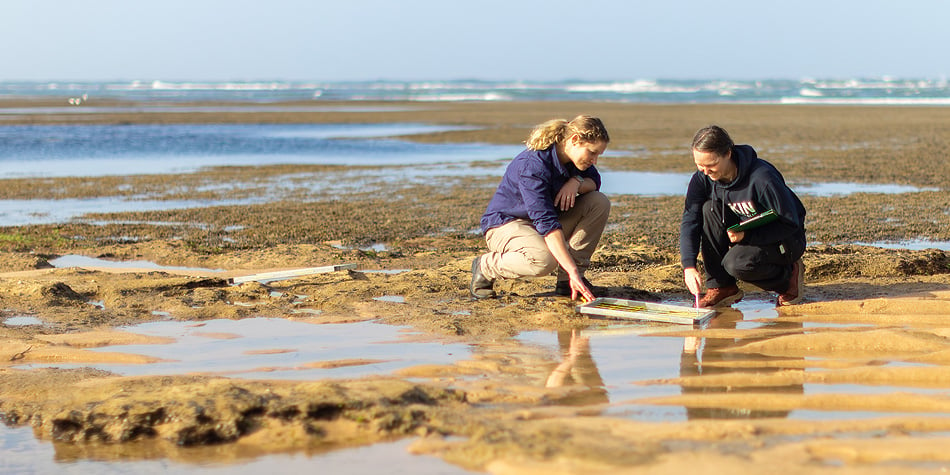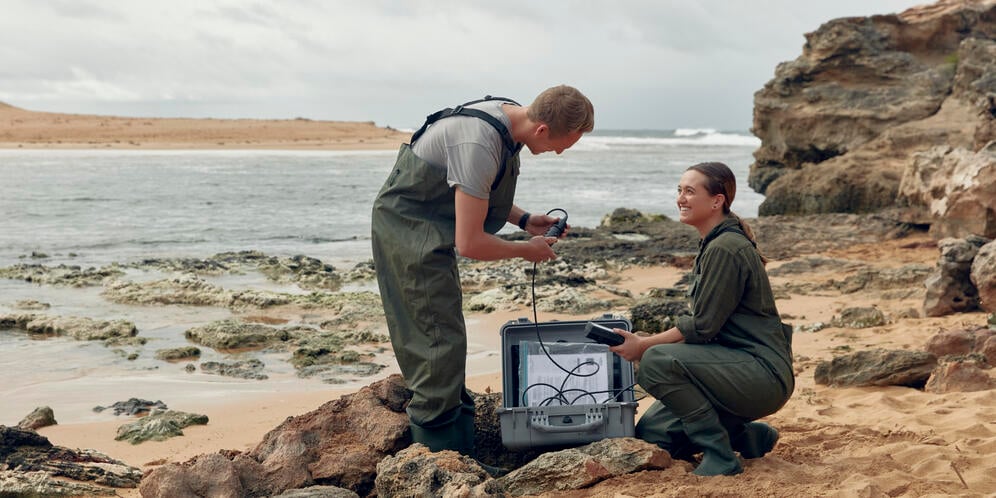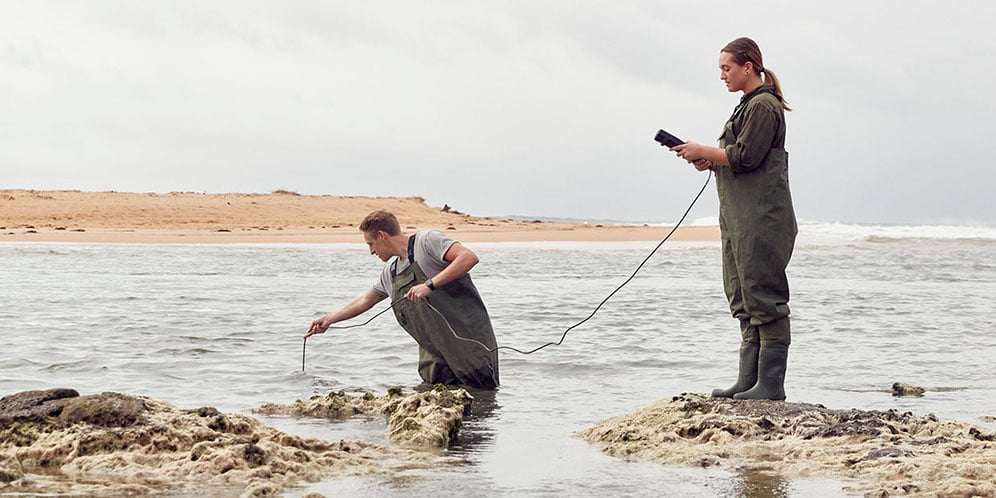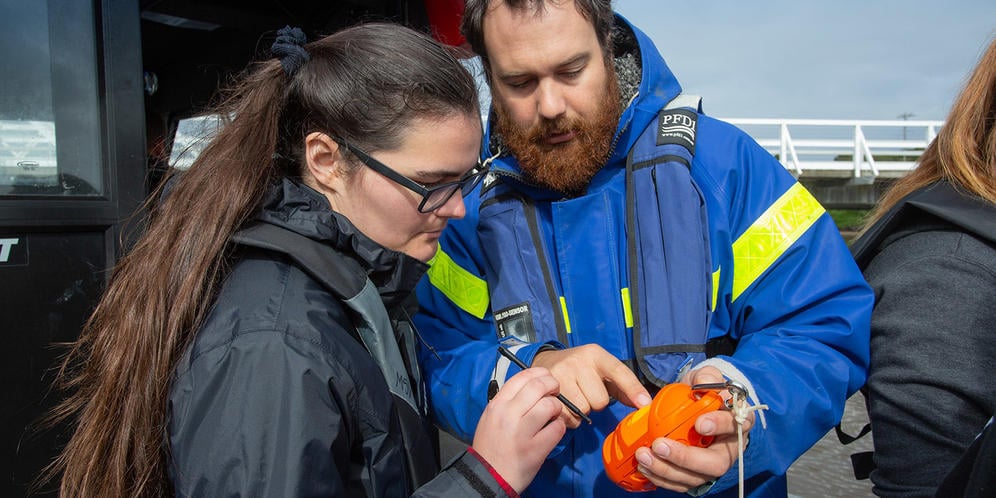Explore your study options
Our purpose-built marine facilities allow you to test your knowledge in real-world environments while you study. You’ll graduate ready to tackle the latest in conservation, sustainability and management of our marine environment.
Undergraduate
Undergraduate (your first degree)
A Deakin undergraduate course is the foundation of your future career, usually completed in two to four years. Duration varies based on degree type, enrolment pattern and any credit received from recognition of prior learning.
Research
Higher Degrees by Research (supervised research)
Research degrees are research based master’s or PhD programs that focus on a single area of expertise. They provide students the opportunity to carry out highly specialised research under expert supervision.
Choose a marine science degree that will get you work ready
Be taught by world-leading marine scientists dedicated to equipping you with the skills and knowledge required to enter the marine and environmental employment sectors.
Hands on, in nature
Our campuses are close to some of Australia’s most renowned coastlines for fieldwork, giving you access to a diverse array of marine animals, plants and coastal locations, such as rocky shores, mangroves and open ocean.
Real experience with real employers
You’ll have the chance to access placements with high-profile organisations such as Parks Victoria, the Australian Institute of Marine Science and other local, state and government agencies.
World leader in environmental research
Deakin was awarded the highest possible rating in environmental sciences and environmental science and management by the Australian Research Council's ERA National Report.* This highlights our world-class facilities, academic reputation and research impact.
Professional recognition
Our Bachelor of Marine Science is an interdisciplinary program that aligns closely with the National Marine Science Plan. It provides a broad field of marine science studies where you can select a major in either ocean, fisheries and aquaculture sciences or sustainable marine management.
Top professional roles in marine science
According to the World Economic Forum, climate change adaptation is expected to be the third-largest contributor to net growth in global jobs by 2030, projected to contribute an additional 5 million net jobs. Climate-change mitigation comes in sixth with an additional 3 million net jobs.^
Graduate ready to help manage our marine habitats and ecosystems, with access to a diverse range of career opportunities and roles. Graduates in marine science are multidisciplinary and enjoy a diverse range of career options including:
- aquaculture
- biodiversity conservation
- fisheries
- marine biochemistry and biotechnology
- marine biology and ecology
- marine management
- microbiology and genomics
- oceanography
- remote sensing and quantitative modelling.
I love the hands-on nature of our marine units – from developing essential skills in our state-of-the-art laboratories and applying these skills out into our local marine environment, the Great Southern Reef.
Prue Francis
Senior Lecturer, Marine Science
Study at the #1 Victorian uni for graduate employment
Deakin's online marine science degrees are designed to fit your lifestyle and career goals so you can study anytime, anywhere. Join more than 78,000 online students who have already graduated from Deakin.
World-class teaching experiences
Our state-of-the-art facilities, hands-on learning opportunities, and industry placements will allow you to stand out and ensure that you graduate job ready.
Professional work experience
Every marine science student at Deakin completes a professional practice unit that includes an industry-based placement (internship). This not only provides you with experience but the opportunity to start establishing your professional networks, all while receiving credit towards your degree.
Strong industry connections
Our close links with industry, including the Victorian Fisheries Authority, Parks Victoria and the Department of Energy, Environment and Climate Action, ensure you'll graduate with the skills and knowledge your future employers are looking for.
Unrivalled facilities
Learn and study in prime locations while you pursue your passion for marine science. Our coastal Warrnambool and Geelong Waurn Ponds campuses give you access to amazing marine ecosystems and state-of-the-art facilities.
Explore our marine facilities
Discover what sets Deakin apart with facilities located right on the doorstep of pristine coastal ecosystems and some of Australia's most renowned coastlines for fieldwork.
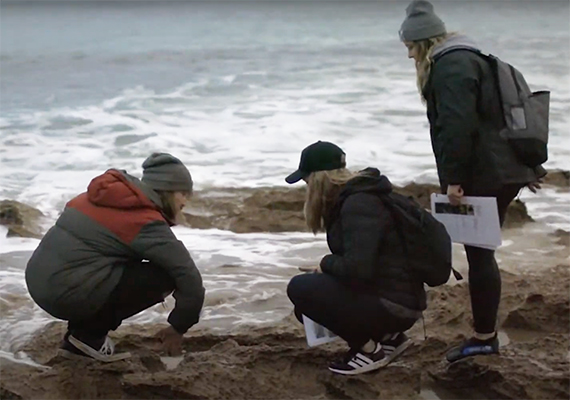
Rankings and footnotes
Deakin references data from a range of government, higher education and reputable media sources. For more information, visit our University rankings page.
*State of Australian University Research 2018-19: Excellence in Research for Australia (ERA) National Report.
^World Economic Forum: The Future of Jobs Report 2025.
Contact us
Got a question about our marine science courses? Our course advisers are available to speak to you about your study options and how we can help you further your career.
Domestic students
1800 693 888
Enquire online
International students
+61 3 9918 9188
Enquire online

